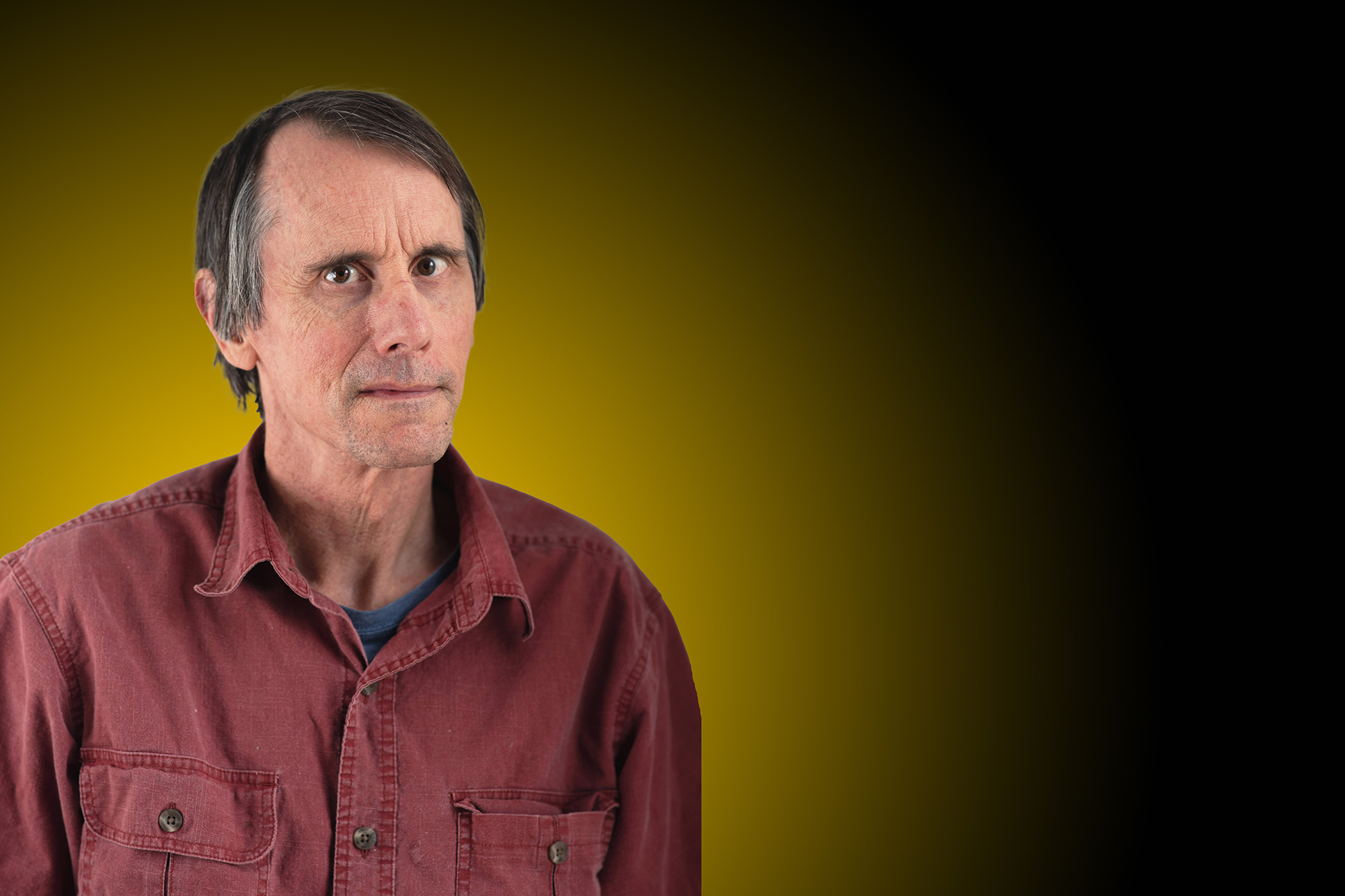Elite neuroscientist to receive honorary degree

One of the world’s leading neuroscientists will receive an honorary degree from the University of Iowa at the Graduate College’s spring 2021 doctoral virtual commencement ceremony on May 14.
Mark Mattson, professor of neuroscience at Johns Hopkins University, is one of the most cited neuroscientists in the world, with more than 180,000 citations, and was elected a fellow of the American Association for the Advancement of Science in 2011. In 2012, he received an alumni fellow award from Iowa, which recognizes alumni for outstanding contributions in their profession.
Mattson’s work has advanced scientific understanding of how the brain ages and of neurodegenerative disorders including Alzheimer’s and Parkinson’s disease. His most notable studies are on how the brain responds to challenges and mild stress, such as fasting and exercise.
However, Mattson says his career almost went in a different direction had it not been for hearing the most fortunate “no” in his life after his sophomore year at Iowa State University.
“I wanted to be a veterinarian,” says Mattson. “I grew up on a farm in southern Minnesota, and my father and grandfather both trained and raced standardbred horses. I was in pre-vet at Iowa State when I applied to vet school after my second year and didn’t get in.”
Instead, Mattson pivoted to the hard sciences, particularly endocrinology. He pursued an undergraduate degree in zoology at Iowa State, then a master’s in biology at the University of North Texas (at the time called North Texas State University) from 1980 to 1982.
“(My work) in Texas was my earliest interest in the brain,” says Mattson.
His interest in the brain grew deeper during his time at the UI, from 1982 to 1986, when he received a PhD in biology. His PhD project focused on the neuroendocrine system that controls the molting process in marine crabs. By studying the crabs’ neurons, Mattson was able to identify the neurotransmitters released during the molting process and see how they activate the crabs’ hormones.
It wasn’t until his next stop, Colorado State University, that Mattson became interested in how the brain ages and in neurodegenerative disorders. This occurred when he made an important discovery about an abundant amino acid neurotransmitter, glutamate.
“It turns out, if I exposed cultured neurons to high concentrations of glutamate, then it excites them to death,” says Mattson. “This is something that happens in epilepsy and we think happens in Alzheimer’s and Parkinson’s disease.”
It was the first of many discoveries for Mattson, and by 1989 his focus had shifted to brain aging. He was working an assistant professor of anatomy and neurobiology and associate of the Sanders-Brown Research Center on Aging at the University of Kentucky.
“In Kentucky, we did a lot of work that provided insight into what can go wrong in the brain during aging and how age-related changes in the brain predispose neurons to disfunction and degeneration,” says Mattson.

Despite the challenges of navigating a pandemic, our students continue to excel. As the latest cohort of Hawkeyes prepares to graduate, we celebrate their accomplishments.
Mattson worked at Kentucky for 11 years, becoming professor of anatomy and neurobiology in 1997. One of his studies included intermittent fasting and calorie restriction, which first saw promise in extending life in animals.
“In the 1990s, there were an increasing number of studies in animals showing that daily calorie restriction and intermittent fasting can extend the lifespan of rats and mice,” says Mattson.
If the process of intermittent fasting and calorie restriction began when the mice were young adults and continued throughout their lifetime, they would live up to 50% longer than control animals.
“This was an intervention of calorie restriction and intermittent fasting that seemed to counteract aging. And since age is a major risk factor for Alzheimer’s, Parkinson’s, and strokes, we did more experiments,” says Mattson.
His experiment was simple: Mice were divided into two groups. One was fed daily while the other was fed every other day.
“What we found was that intermittent fasting helped protect neurons from dysfunction and degeneration and prevented memory loss in rodent models of epilepsy and Alzheimer’s disease,” Mattson says. “In strokes, intermittent fasting increased motor functions on the affected side.”
The National Institutes of Health (NIH) took notice, and in 2000 Mattson was offered to continue his work and establish a neuroscience laboratory at the National Institute of Aging in Baltimore. It was there that his work reached new heights.
“We found beneficial effects in many studies, including loss of belly fat, reduced blood pressure, and improved glucose regulation. But the popularization of intermittent fasting has its roots in a study we did with a group in England,” says Mattson.
A producer for the BBC discovered Mattson’s research and created a documentary on intermittent fasting that aired in 2013. The documentary eventually made its way to PBS, and a phenomenon was born.
NPR, Time Magazine, NBC’s Today Show, and more all wanted a piece of Mattson’s work as word spread around the world. Mattson even did a TED Talk, which has more than 4 million views on YouTube.
“All of the sudden it went viral,” says Mattson. “If you would have done a Google search on intermittent fasting in 2010, the top result would be scientific studies. If you do it now, you’re hard pressed to even find the studies because there is so much written about them. But that’s a good thing.”
Mattson retired from the NIH in 2019 after almost 20 years at the agency. He continues teaching at Johns Hopkins University and has written two books, including one on intermittent fasting.
“There’s interest by mainstream medicine,” says Mattson. “A lot of work needs to be done, but just in the last three or four years, there has been a big increase in human studies and trials of intermittent fasting.”
Looking back, Mattson says his rejection from veterinary school turned out to be the best thing that could have happened to him.
While he thinks about the next generation of scientists who build upon his work, he also is reminded of those in other areas who may fail like he did.
And for those who fail at one thing, it may open a different, but better door to another opportunity.
“I failed in helping horses but succeeded in helping people,” says Mattson.


